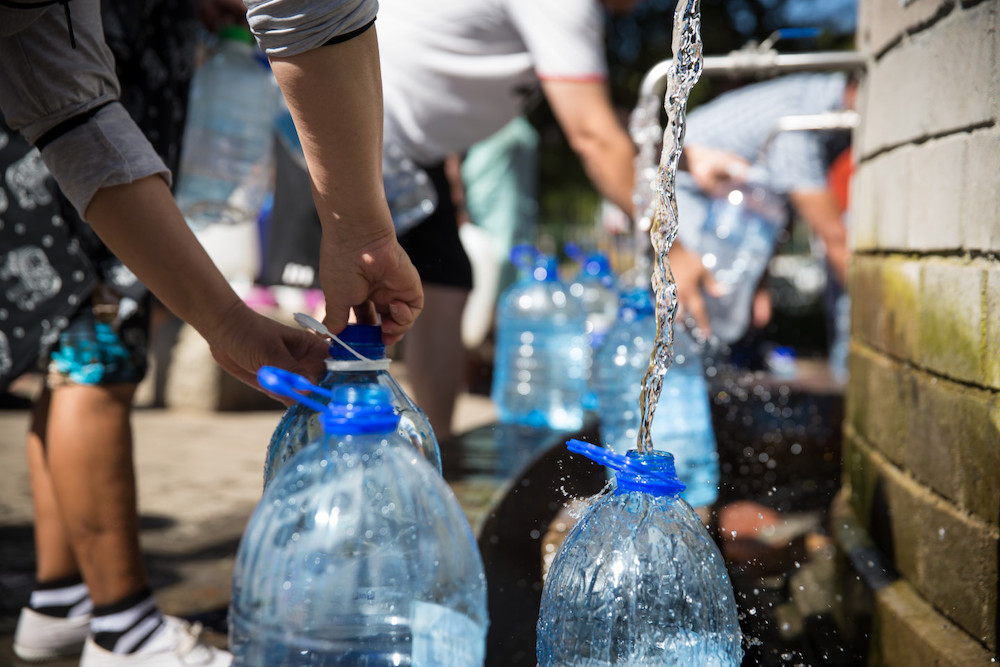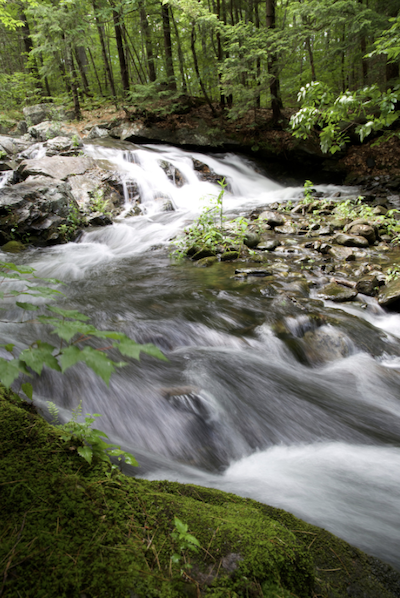2021
World Water Day 2021
March 22, 2021
22 March 2021 — The World Water Day celebrates water and raises awareness of the global water crisis. A core focus of the observance is to support the achievement of Sustainable Development Goal (SDG) 6: water and sanitation for all by 2030.
It is a means of focusing attention on the importance of freshwater and advocating for the sustainable management of freshwater resources.
Water is our most precious resource, a ‘blue gold’ to which more than 2 billion people do not have direct access. It not only is essential to survival, but also plays a sanitary, social and cultural role at the heart of human societies.
Audrey Azoulay, Director-General of UNESCO

Photo courtesy of UNESCO
Valuing Water
The theme of World Water Day 2021 is Valuing Water. The value of water is about much more than its economic value: water has enormous and complex value for our households, food, culture, health, education, economics and the integrity of our natural environment.
If we overlook any of these values, we risk mismanaging this finite, irreplaceable resource. SDG 6 is to ensure water and sanitation for all. Without a comprehensive understanding of water’s true, multidimensional value, we will be unable to safeguard this critical resource for the benefit of everyone.

Image courtesy of UNESCO
Ignoring the value of water is the main cause of water waste and misuse
The failure to fully value water in all in its different uses is considered a root cause, or a symptom, of the political neglect of water and its mismanagement.
Recognising, measuring and expressing water’s multiple values, and incorporating these into decision-making processes, are fundamental to achieving sustainable and equitable water resources management.
A new World Water Development Report is released each year on or near World Water Day, to provide decision-makers with tools to formulate and implement sustainable water policies. This report is coordinated by UNESCO’s World Water Development Programme (WWAP) on behalf of UN-Water. The annual theme for World Water Day is aligned with the focus of the report.
Below are the details from the report.
Valuing water supply & sanitation services

Climate change will affect the availability, quality and quantity of water needed for basic human needs, thus undermining enjoyment of the basic rights to safe drinking water and sanitation for billions of people.
Water is a basic human need, required for drinking and to support sanitation and hygiene, sustaining life and health. The access to both water and sanitation are human rights.
To give the right value to water and sanitation services we need to take into account the benefits these services bring to people, such as improved living conditions and productivity, reduced health care costs, and involvement in the workplace.
It is estimated that achieving universal access to safe drinking water and sanitation in 140 low- and middle-income countries would cost about USD 114 billion per year.
Valuing water for the economy
The value of water to agriculture, industry, business and energy can be assessed though an economic input–output perspective that variously quantifies returns or benefits, such as employment, product value per unit of water or product value-added.
Agriculture uses the major share (69 per cent (%)) of global freshwater resources. Food security has long been a challenge for human societies and will become an increasingly pressing global issue over the coming decades: global demand for food and other agricultural products is projected to increase by 50% between 2012 and 2050, driven by population growth.
Additionally, in many regions of the world, water for food production is major driver of environmental degradation, including depletion of aquifers, reduction of river flows, degradation of wildlife habitats, and pollution. Industry and energy combined withdraw 19% of the world’s freshwater. Read more here.
Valuing water for the environment
The environment–water interface can be proactively managed to address water-related challenges through ‘nature-based solutions’. Eighty per cent of all industrial and municipal wastewater is released into the environment.
This approach centres on the concept that natural infrastructure can function in the same way as built infrastructure, delivering important benefits to people such as the biodiversity conservation, fisheries, recreation and tourism and reducing water-related operational cost.
The environment should be recognised as an asset that must be maintained and managed, thinking to the multiple services it delivers; defining environmental values by monetary-based approaches would undervalue and commodify nature. Therefore, it is crucial that environmental values include different perspectives of economic valuation, as well as other cultural and societal beliefs.

The way forward
1. A multi-value approach to water governance
A multi-value approach to water governance is crucial if sustainability of water is to be achieved. This approach does not only relate to water, but aims to engage with the whole social, cultural, economic and wider political system. A good water governance recognises multiple values and the active participation of a varied set of actors.
2. Take all benefits into account
To maximise the value of water in investment decisions all benefits need to be taken into account including those that are economic, social or environmental; and where benefits cannot be monetised, other valuation tools can be used.
In these cases tools as cost–effectiveness analyses, which compare costs with non-pecuniary outcomes such as lives saved, people served or environmental metrics achieved are recommended. Another critical factor for determining benefits of a project is comparing it to what would happen if the project were not undertaken.
3. We need data
Data and information relating to social, economic and environmental demands and uses for water are also needed to complete the picture for potential value generation from water. Water-related data and information are central to understanding and valuing the resource; this can be done by expanding citizen science and involving representative of local stakeholders in “ground-truthing” data and information.
4. Involve all stakeholders
A full and meaningful participation of relevant stakeholder groups in assessments and gender-sensitive decision-making is the most effective, and equitable, means to capture the full spectrum of values.
Read the water stories that FuturArc has covered.
Water World by Y-Jean Mun-Delsalle
Groundbreaking solutions are being invented by forward-thinking architects to show how coastal cities can become more resilient, viewing climate change as an opportunity to lead the way in waterborne and flood-resistant architecture.

Image courtesy of BIG (Bjarke Ingels Group)
Singapore: Asia’s little blue dot by Heather Marshall Banerd
Singapore has spent the past 50 years turning chronic water scarcity into one of their biggest strengths. How does a small island with no natural resources become a water industry leader and icon for sustainable urban development in less than 50 years?

Photo by Heather Marshall Banerd
Building Blue and Green Spaces
An increasing number of cities in Asia are engaging in efforts to develop and integrate water networks and Green infrastructure as urban planning strategies that also provide for public spaces.

Bangkok by Dr Ann Deslandes
Long-standing concerns about the effects of climate change on the city of Bangkok were dramatically increased when the city flooded in 2011. Over 740 people were killed and it was many months before the city was functioning again. The damage to the Thai capital was estimated at over USD9 billion.

Urban Rigger
To meet the demands of a growing student body on a shoestring budget, revolutionary low-cost modular dorms were built using shipping containers that can float in urban harbours.

To read the complete article, get your hardcopy at our online shop/newsstands/major bookstores; subscribe to FuturArc or download the FuturArc App to read the issues!
Previously Published Happening
Contact us at https://www.futurarc.com/contact-us for older articles.

